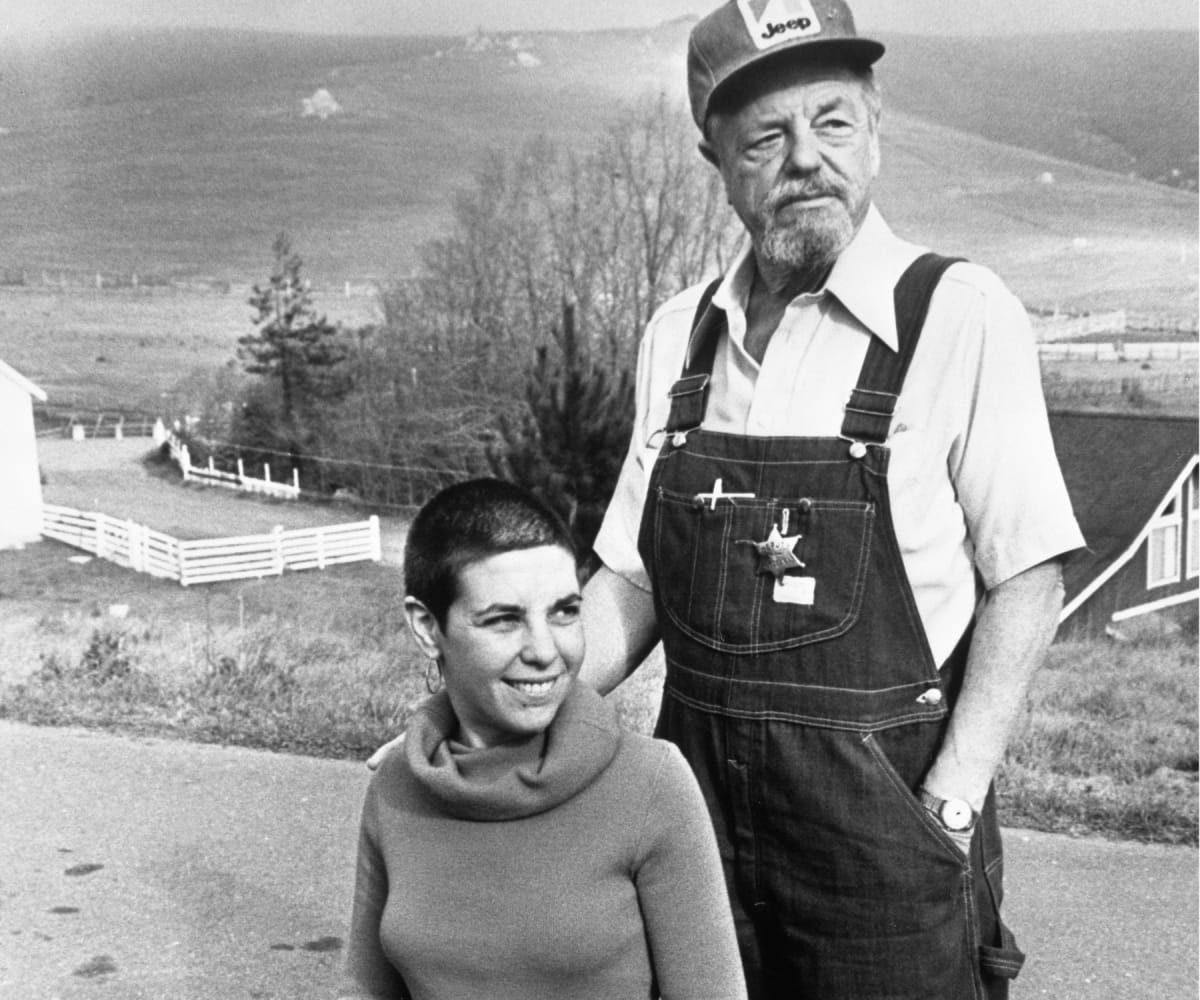ALL ABOUT SYNANON: A DRUG REHABILITATION PROGRAM THAT TURNED INTO AN INSIDIOUS CULT

An HBO documentary titled, "The Synanon Fix" has once again put the spotlight on Charles 'Chuck' Dederich, decades after his brainchild was disintegrated. It tells the tale of a group that took control of peoples' lives in the guise of drug rehabilitation. Dederich did not seem to be a born mastermind, but managed to pull off the manipulation that laid the foundation of Synanon, since his history with addiction gave him first-hand experience of the vulnerability, which he exploited to entrap his victims.

Synanon was marketed as a temple for addicts, where they could come to get rid of their life-threatening dependency on drugs. Over time the organization turned "into a complex system of businesses and egalitarian communal living led by Chuck and his wife, Betty."
Dederich's had a rough upbringing after losing his father to alcohol only to struggle with a stepfather who he did not like. Long before he passed high school, Dederich gave in to addiction that haunted him well into his 40s. After turning 43 he entered into Alcoholics Anonymous to relieve himself of addiction, and found people like him who needed a sanctuary to rebuild themselves after being victims of addiction for so long. In his opinion, the AAs in the country did not facilitate the addicts with this opportunity so he decided to build his own space.
He soon realized that he had struck gold, and opened his apartment for addicts to stay in while they fought off their urges. He wanted the addicts to undergo emotional and verbal catharsis while they lived under his roof, and his idea flourished in the middle of the "heroin epidemic" in America. Seeing the profit and revenue attached to the scheme, Dederich began consolidating the system. He named the organization "Synanon" after hearing a follower stumble over the words 'seminar'' and 'symposium,'" reported the New York Times. There were strict rules that the participants needed to follow, and if they strayed away from them, then harsh punishments were meted out. The belief was that individuals were becoming new selves through their rehabilitation and therefore needed to be disciplined like children.
The organization used methods such as “the Synanon game,” where participants screamed out their thoughts about each other and then hugged it out. The control that the organization had over them was such that even after members recovered from addiction, they stuck around. Some had burnt a lot of bridges back home while others were scared of a relapse, and Dederich brilliantly used all this to keep members attached to the organization. In a matter of three years, the rehabilitation facility turned into a communal living facility at a three-story building in Santa Monica.
Members were encouraged to participate in mass weddings, take care of each other's children, and give up their privacy. The organization ensured that they always knew what was going on in a member's life. The only 'alone time' the members got was with their partners in a candle-lit private room. The agency of building their own thoughts was taken away with the constant surveillance and targeting of their desire for rehabilitation.
It was easy for Dederich to trap people in this absurdity because events such as the Vietnam War and the Watergate scandal were slowly making civilians lose trust in the present state of affairs. They wanted something to invest their trust in and unfortunately, Dederich presented Synanon as an outlet.
Former members of the cult appeared in the documentary to share their experiences. “I really saw the organization as a vital approach to civil rights,” Rod Mullen, who was a member of Synanon for more than a decade, says in The Synanon Fix. Elena Broslovsky who was with the group for two decades saw it as an opportunity to escape the despair she felt towards her country's conditions.
The members participated in dance parties devoid of alcohol and drugs, where they had to move their legs and hands wildly to show their uninhibited nature. The ones that suffered the most in this arrangement were children who had to quickly grow up and take care of themselves as their parents participated in activities organized by Synanon. Dederich put them to work making them empty buckets and bringing cold rags for addicts lying on the communal couches. “Synanon was an experiment," said Bill Goodson who joined the group with his mother at the age of 3, "and the thought of children was the last thing on [Dederich's] mind.”
The group's downfall began when Dederich himself gave in to alcohol once again when his wife passed away, triggering a series of bizarre decisions that led to a massive dip in public support. He remarried and enforced a rule in the group that asked men to swap wives between themselves. Even the couples that were happy together had to part ways because of his influence. He also asked people to go childless, causing many men to get vasectomies in the group.
Many former members were left mortified at how much they had been manipulated. They began to file lawsuits with the help of lawyers like Paul Morantz. Seeing walls close in the group attacked Morantz by hiding a rattlesnake in his mailbox. Two Synanon members—who called themselves part of the “Imperial Marines”—were arrested and convicted for trying to kill him while Dededrich was put on 5 years probation. The group never quite bounced back from that, despite filing lawsuit after lawsuit against their naysayers. The final nail in the coffin happened in 1991 after the IRS stepped in to revoke its tax-exempt status. In 1997 Dederich succumbed to cardiorespiratory failure at the age of 83.